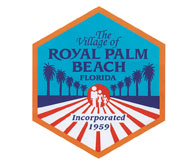The Royal Palm Beach Planning & Zoning Commission recommended approval Tuesday of comprehensive plan and zoning amendments that would allow a senior care facility as part of the commercial component of the mixed-use Cypress Key development on Southern Blvd.
Development Review Coordinator Kevin Erwin said the applicant wants institutional uses to be added to the office category. If the zoning text amendment is approved, the institutional uses would include financial institutions, public or private institutions, child daycare centers and/or senior housing facilities.
It would also lower the minimum floor-area ratio requirements for retail service, and raise the maximum floor area ratio requirement for office/institutional.
“There is a site plan that is working its way through the process that does show a senior housing facility, a daycare center and two restaurants with drive-throughs,” Erwin said. “In addition to that, they have reduced the floor area that was approved. I believe the latest site plan that went through went down to 125,000 square feet, and this will further lower it to somewhere around 117,000.”
He said village staff recommended approval.
Ken Tuma with Urban Design Kilday Studios, representing the applicant, said this was the first step in the process, and they would reach out to the nearby neighborhoods.
“The key thing that we’re doing is reducing the retail on that site,” Tuma said. “The retail that was originally approved was about 60,000 square feet. We’re bringing it down to about to 20,000 square feet, and we’re allowing for institutional uses, which are a daycare and a senior living or assisted-living facility.”
Commission Chair Jackie Larson asked for a better definition of assisted living, and Erwin explained that the Royal Palm Beach Village Council recently had adopted a senior housing ordinance that brought Royal Palm Beach up to date with industry standards.
Village Attorney Jennifer Ashton said the village housing code now includes convalescent care.
“This is an institutionalized living facility,” Ashton said. “These are not people who are able to go out on their own at all times whenever they want. It is more of a care center. There could be some assisted-living components to it where they have more independence, but we’ll get to more of that when we have the site plan.”
Commissioner Richard Becher asked whether the facility would include Alzheimer’s care, and Ashton said it could.
Larson pointed out that the Cypress Key development had been given a mixed-use designation, which was created specifically for this site. Given the issues that have arisen with Cypress Key over the past decade, Ashton said the council has made it clear that it does not want this use anywhere else in the village.
Commissioner David Leland made a motion to recommend approval of the comp plan amendment, which carried 5-0.
The commissioners also recommended approval of the accompanying zoning amendment, allowing the various types of institutional uses.
Becher said his only concern was a provision that the property owners’ association would be controlled by the residential component of the development.
Ashton said some of the interested commercial entities did not want to be part of a residential POA. “Residential and commercial POAs have different viewpoints on how properties should be managed and run, so what we created… is that the residential POA shall be responsible for all common roadways, and they’ll be responsible for perimeter maintenance, because our ordinance says the mixed-use must look and feel like one site, even though they are much different,” she said. “If the residential POA is in charge of the perimeter landscaping and maintaining the roadways, we would assure consistency in how the maintenance is happening.”
Ashton said the commercial component would be paying a portion of the maintenance expenses but would not be involved in how the maintenance gets done.
“How this came about, especially from what I heard with the memory care facility, was that they did not want to be part of the residential POA,” she said. “They don’t mind paying for maintenance costs, but they do not want to be in that formal structure of a POA.”
Becher made a motion to approve the application as submitted, which carried 5-0.








